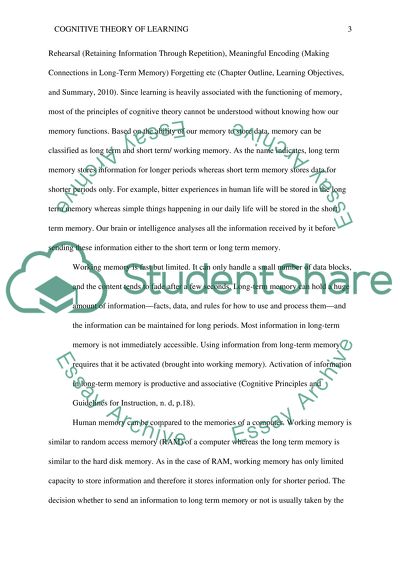Cite this document
(“Theory of Learning - Cognitive Research Paper Example | Topics and Well Written Essays - 2000 words”, n.d.)
Retrieved from https://studentshare.org/psychology/1430713-theory-of-learning-cognitive
Retrieved from https://studentshare.org/psychology/1430713-theory-of-learning-cognitive
(Theory of Learning - Cognitive Research Paper Example | Topics and Well Written Essays - 2000 Words)
https://studentshare.org/psychology/1430713-theory-of-learning-cognitive.
https://studentshare.org/psychology/1430713-theory-of-learning-cognitive.
“Theory of Learning - Cognitive Research Paper Example | Topics and Well Written Essays - 2000 Words”, n.d. https://studentshare.org/psychology/1430713-theory-of-learning-cognitive.


